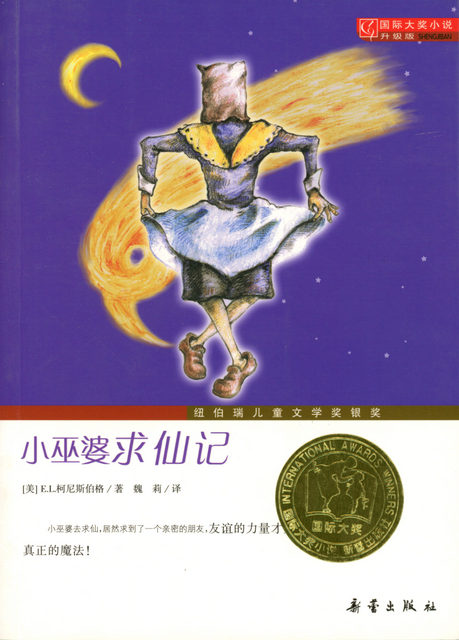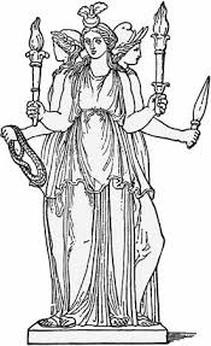

He’ll think himself immune to fate will mock death and will think he has no need for wisdom, grace, or fear. When I charm the droplet with magic spells, it will raise up fantastic spirits that will trick Macbeth with illusions, and he'll walk right into his own destruction.

On the corner of the moon there hangs a droplet, ready to fall. I’ll spend the night working to make a terrible and deadly outcome for him. Bring your cauldrons, your spells, your charms, and everything else. Get out of here and meet me at the pit of Acheron, where Macbeth will go to learn his destiny. In Act III, scene v, she sweeps in to scold her minions, the three witches introduced at the opening of the play, for their mishandling of the Macbeth situation. The play is likely invoking the goddess herself. Like all brats, he cares only about what he wants and not about you. The name Hecate is drawn from the Greek goddess of feminine magic. And you all know, security Is mortals’ chiefest enemy.ĭon’t I have a reason to be angry, you hags? How dare you trick Macbeth with riddles and prophecies without including me-the source of your powers the creator of all evil things and the greatest practitioner of our magic? And, even worse, you’ve done all this for an unreliable, angry, and spiteful brat. He shall spurn fate, scorn death, and bear His hopes ‘bove wisdom, grace, and fear. And that distilled by magic sleights Shall raise such artificial sprites As by the strength of their illusion Shall draw him on to his confusion.

Upon the corner of the moon There hangs a vap’rous drop profound. Will come to know his destiny: Your vessels and your spells provide, Your charms and every thing beside. This night I’ll spend Unto a dismal and a fatal end. Some scholars even go as far as to suggest that Middleton rewrote Shakespeare’s weird sisters as the bearded hags we know today, contrasting the 1623 text with Simon Forman’s account of a 1611 performance where. In Act 3, Scene 5, Hecate appears before the Witches and demands to. It is possible that some or all of the Hecate material in the text surrounding the songs in Macbeth was also added by Middleton. Your vessels and your spells provide, Your charms and everything beside. Hecate is the goddess of witchcraft, and one can view her as the ruler of the Three Witches. Thither he Will come to know his destiny. Get you gone, And at the pit of Acheron Meet me i’ th’ morning. Hecate, queen of the witches, scolds the three Weird Sisters for not involving her in their trade and traffic with Macbeth.

Hecate wants to ruin Macbeth her plan is put forth: 3:5:29 "draw him on to his confusion: He shall spurn fate, scorn death, and bear His hopes 'bove wisdom, grace, and fear And you all know security Is mortals' chiefest enemy.Have I not reason, beldams as you are? Saucy and overbold, how did you dare To trade and traffic with Macbeth In riddles and affairs of death, And I, the mistress of your charms, The close contriver of all harms, Was never called to bear my part, Or show the glory of our art? And, which is worse, all you have done Hath been but for a wayward son, Spiteful and wrathful, who, as others do, Loves for his own ends, not for you. However Hecate sees that there is a problem which needs fixing. One would think that he would be damned for this, which was the aim of the witches. He has killed his king and had others killed in his quest for power. 14 d., Hecate only appears in two scenes in Macbeth: firstly to chastise her subordinates. They set him on a bloody course of ambition. How does Shakespeare characterize the witches in Macbeth. Now all of this makes for great entertainment, but what is the idea behind it? From the point of view of ruining Macbeth's life it appears that the 3 weird sisters have done a pretty good job up until this point. She says to them: " how did you dare To trade and traffic with Macbeth In riddles and affairs of death. She is variously associated with crossroads, entrance-ways, night, light, magic, protection from witchcraft, the Moon. Macbeth will next murder Duncan, an act that will cause him to ‘see’ more visions, ghosts, and hallucinations later in the play. Hecate or Hekate a is a goddess in ancient Greek religion and mythology, most often shown holding a pair of torches, a key, snakes, or accompanied by dogs, 1 and in later periods depicted as three-formed or triple-bodied. And this is where the scene ends, a scene that had begun with that unsettling vision of a dagger that wasn’t really there. Hecate is represented as a ' senior witch ' who appears in Act 3 scene 5 to chastise the 3 weird sisters. Macbeth now takes the sound of the bell as a sign that he should go and kill Duncan. There is one aspect of the Play which I find most curious this is the character Hecate.


 0 kommentar(er)
0 kommentar(er)
